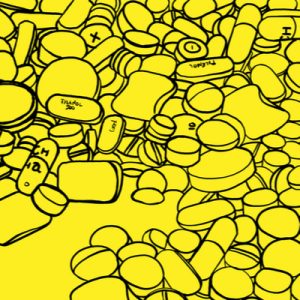Michigan Physician Survey–perspectives on opioid prescribing policies, medication assisted treatment
 Whether opioid policy reforms and additional resources will have an impact on opioid use depends in part on physician support. Physicians need to be key partners in the implementation of changes in opioid prescribing and in providing supportive treatment approaches. In order to understand the likelihood that these policies will succeed, CHRT’s latest Michigan Physician Survey asked physicians about their views on recent opioid initiatives.
Whether opioid policy reforms and additional resources will have an impact on opioid use depends in part on physician support. Physicians need to be key partners in the implementation of changes in opioid prescribing and in providing supportive treatment approaches. In order to understand the likelihood that these policies will succeed, CHRT’s latest Michigan Physician Survey asked physicians about their views on recent opioid initiatives.
Over the last decade, there has been a startling increase in the number of deaths attributed to opioid overdose. Between 1999 and 2016, the number of overdose deaths in Michigan increased seventeen fold—from 99 to 1,699. In 2017, more deaths were due to overdose than car accidents State of Michigan (2019).
In 2017, Michigan enacted legislation intended to deter over prescribing. Key provisions include a seven-day limit on opioid prescriptions for acute pain and mandatory use of the Michigan Automated Prescription System (MAPS). The seven-day limit was put in place to both reduce the supply of prescription opioids in circulation, as well as require more oversight of patients receiving opioids for acute pain. The MAP system was mandated in order to track all opioid prescriptions to individual patients, regardless of source.[footnote]Department of Licensing and Regulatory Affairs and the Michigan Department of Health and Human Services (2019).
In 2017 and 2018, the Michigan Department of Health and Human Services (MDHHS) encouraged expansion of Medication-Assisted Treatment (MAT) programs. Specifically, MDHHS provided more than $7 million for MAT training, rate incentives, and program expansions in rural areas. Additionally, MDHHS recently announced a tuition reimbursement program for training physicians who become waivered to provide buprenorphine.
CHRT analyzed results from the latest Michigan Physician Survey to determine the opinions of primary care providers (PCPs) on these opioid initiatives.
- In general, PCPs think the new prescribing policies will help to address the opioid epidemic, but are concerned about administrative burden and patient care.
- Just one in five physicians offer Medication-Assisted Treatment (MAT) in their practices, and even less are interested in being trained.
- Physicians who are newer-practicing and serving higher volumes of Medicaid patients are more likely to be currently providing or interested in providing MAT.